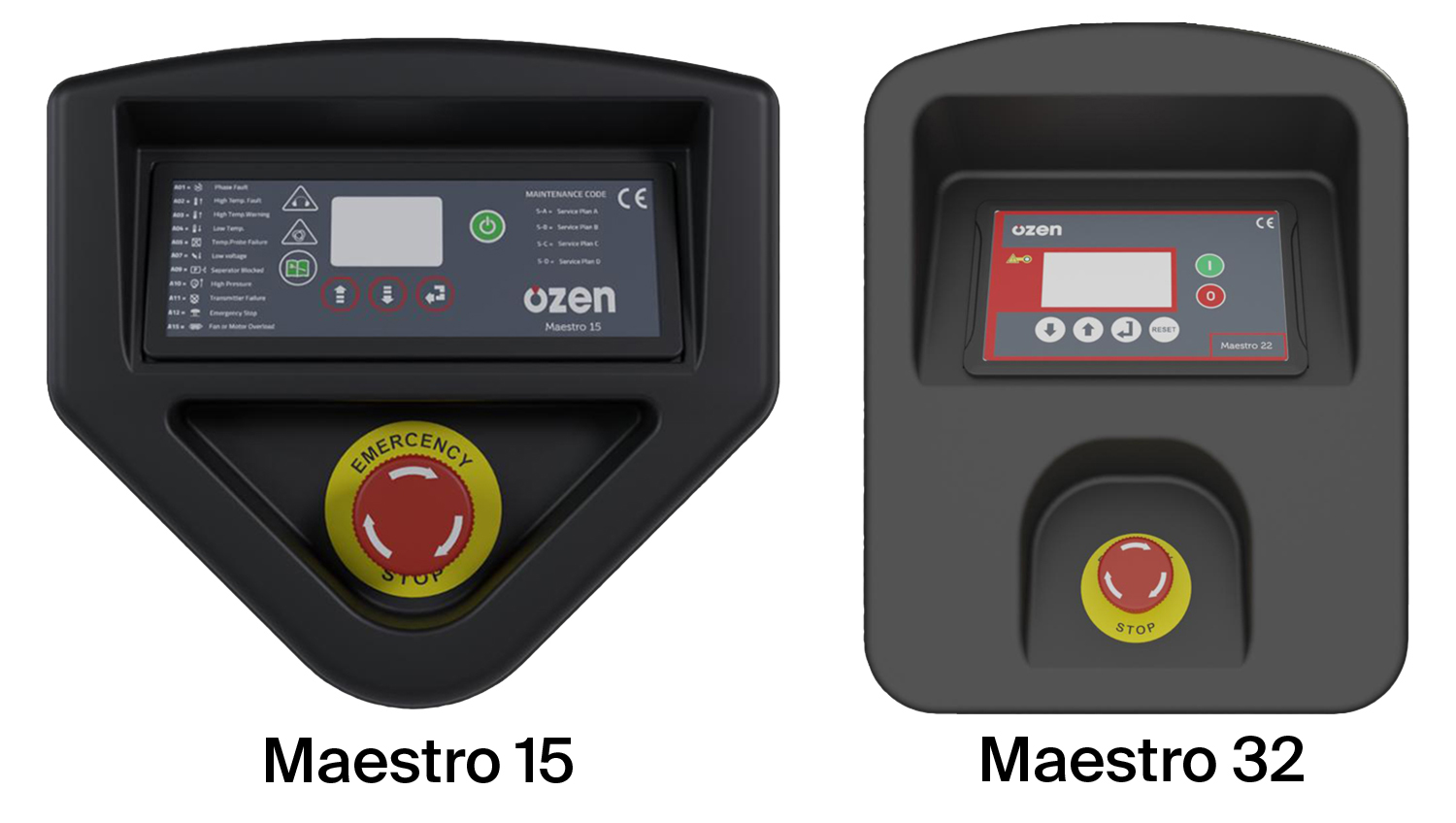Why Are Central Control Units Important?
24 October 2024, Thursday
If an air compressor is the heart of an HVAC system, the central control unit acts as its brain. This vital component plays a significant role in enhancing the efficiency and performance of compressors, ensuring optimal operation and energy savings.
The central control unit functions as a central management system that monitors and controls various parameters such as pressure, temperature, and air flow. By continuously analyzing data and adjusting compressor settings accordingly, it ensures the system operates at maximum efficiency, minimizes energy consumption, and reduces operating costs.
The benefits of a well-designed central control unit extend beyond just improved efficiency. It helps prevent compressor overload, extends its lifespan, and lowers maintenance costs. Additionally, by providing real-time data and insights, it allows facility managers to make informed decisions and detect potential issues before they escalate.

The Role of Central Control Units in Compressor Efficiency
Advanced systems like central control units work like the brain of the compressor, continuously monitoring and adjusting various parameters to ensure peak performance.
One of the main ways they enhance compressor efficiency is by regulating air pressure and flow. Compressors are designed to operate within specific pressure ranges, and any deviation from these ranges can lead to reduced efficiency and increased energy consumption. Central control units constantly monitor pressure levels and make real-time adjustments to maintain optimal pressure, ensuring the compressor is neither overloaded nor underutilized.
Central control units also monitor the temperature of the compressor and its surroundings. Overheating can negatively impact the compressor's performance and lifespan. By monitoring temperature, they can adjust the cooling system or initiate other measures to maintain the ideal operating temperature, thus increasing compressor efficiency and reducing the risk of premature wear and tear.
How Central Control Units Improve Compressor Performance?
By continuously monitoring and adjusting various parameters, the central control unit ensures the compressor operates at its highest capacity, delivering the required air flow and pressure with minimal energy consumption. One of the keyways to improve compressor performance is by optimizing the operating conditions of the motor. Compressors rely on electric motors for the compression process, and the central control unit ensures that the motor operates at the most efficient speed and load. This is achieved by adjusting the motor's frequency, which can significantly increase the compressor's output while reducing energy consumption.
They can also detect changes in system demand, such as fluctuations in air consumption. By adjusting the compressor output accordingly, the central control system ensures that the system always meets the required air demand, preventing overproduction or underproduction of compressed air.
To ensure optimal control and smooth operation, Özen Kompresör uses Maestro Control panels. These panels optimize compressor performance and prevent potential failures and downtime. Equipped with advanced software and hardware features, these panels offer users real-time data tracking and analysis, enabling businesses to enhance energy efficiency and reduce maintenance costs. Offering high precision and reliability, Maestro Control panels are an indispensable solution partner, especially for critical industrial applications.
The Role of Real-Time Monitoring in Central Control Units
Advanced systems continuously collect and analyze data from various sensors and components in the compressor system, providing facility managers with a comprehensive understanding of the system's operation. Parameters such as pressure, temperature, air flow, and energy consumption are constantly monitored, allowing central control units to quickly detect any deviations from optimal operating conditions. This allows for immediate adjustments to compressor settings, ensuring the system remains at desired performance and efficiency levels.
Real-time data collected by central control units can be used to generate detailed reports and analyses, enabling facility managers to make informed decisions regarding maintenance, upgrades, and system optimization. This data-driven approach helps identify potential issues before they escalate, ensuring proactive maintenance and minimizing unexpected downtime.
Factors to Consider When Choosing a Central Control Unit for Your Compressor System
When selecting a central control unit for your compressor system, there are several key factors to consider ensuring you choose the solution that best fits your needs.
One of the main factors is the size and complexity of your compressor system. Larger and more complex systems may require a more advanced central control unit that offers greater processing power, extensive monitoring capabilities, and enhanced customization options. On the other hand, smaller systems may be better suited to a more compact and user-friendly microprocessor-based central control unit.
Another important factor is the level of integration and compatibility required. Ensure that the central control system you choose can seamlessly integrate with your existing compressor system and other equipment or building management systems in your facility.
Opt for models that offer advanced energy optimization features, such as variable speed control and predictive maintenance capabilities, which can help improve the efficiency of your compressor system and reduce overall energy costs.
Additionally, user-friendliness and ease of use of the central control system interface should also be considered. A well-designed intuitive control panel can make it easier for your facility staff to monitor and manage the compressor system, reducing the risk of errors and improving overall system performance.
